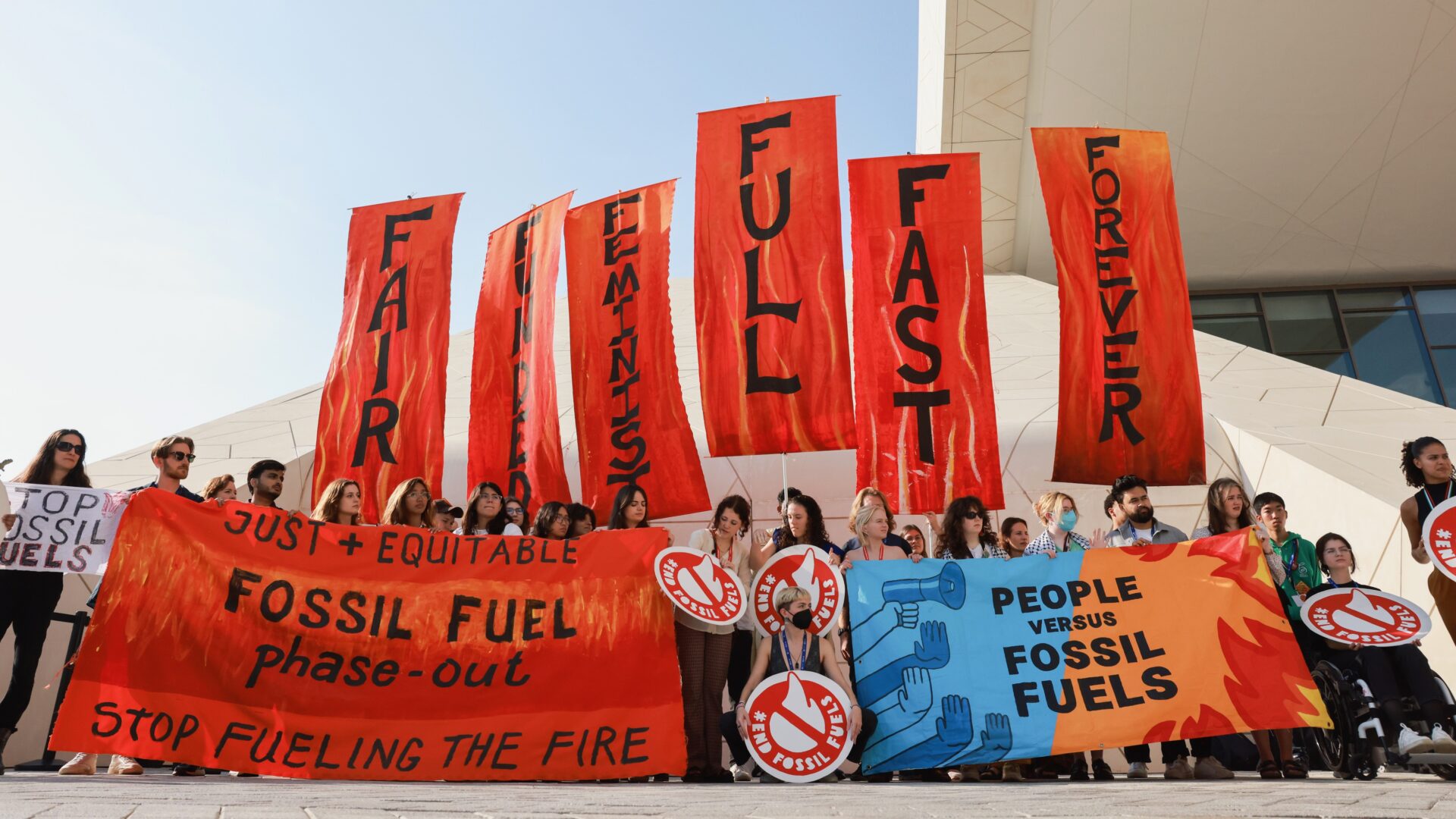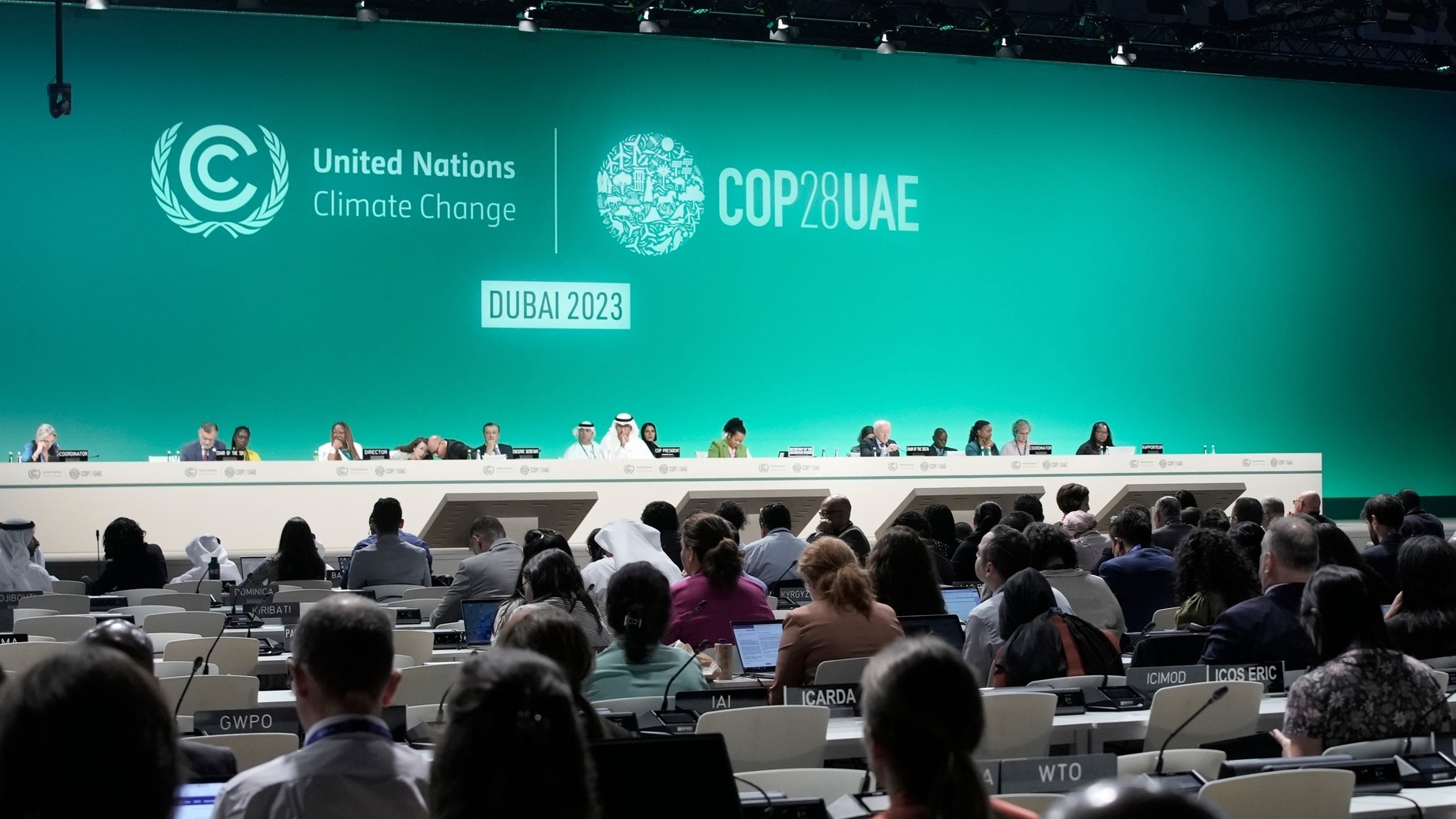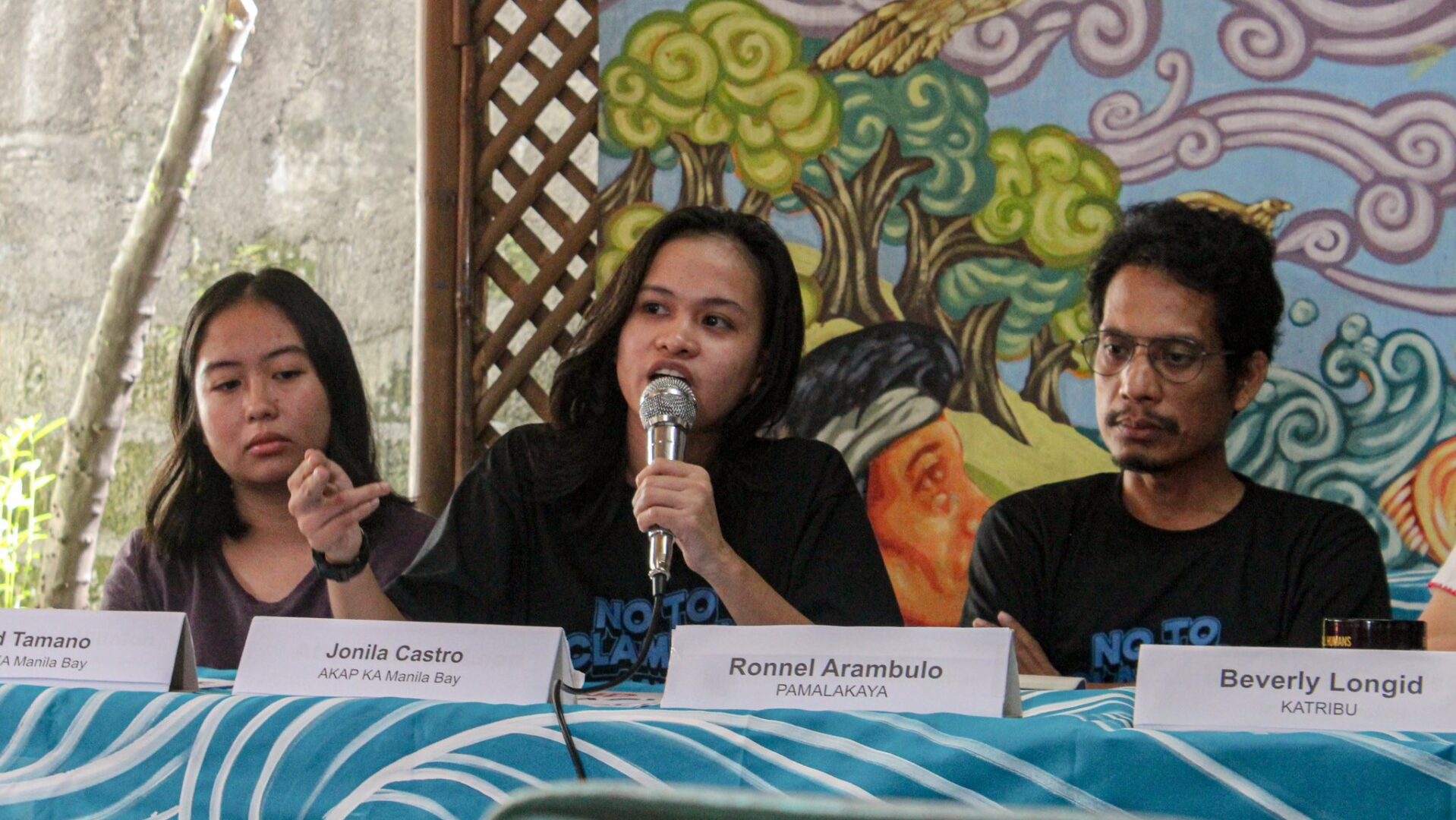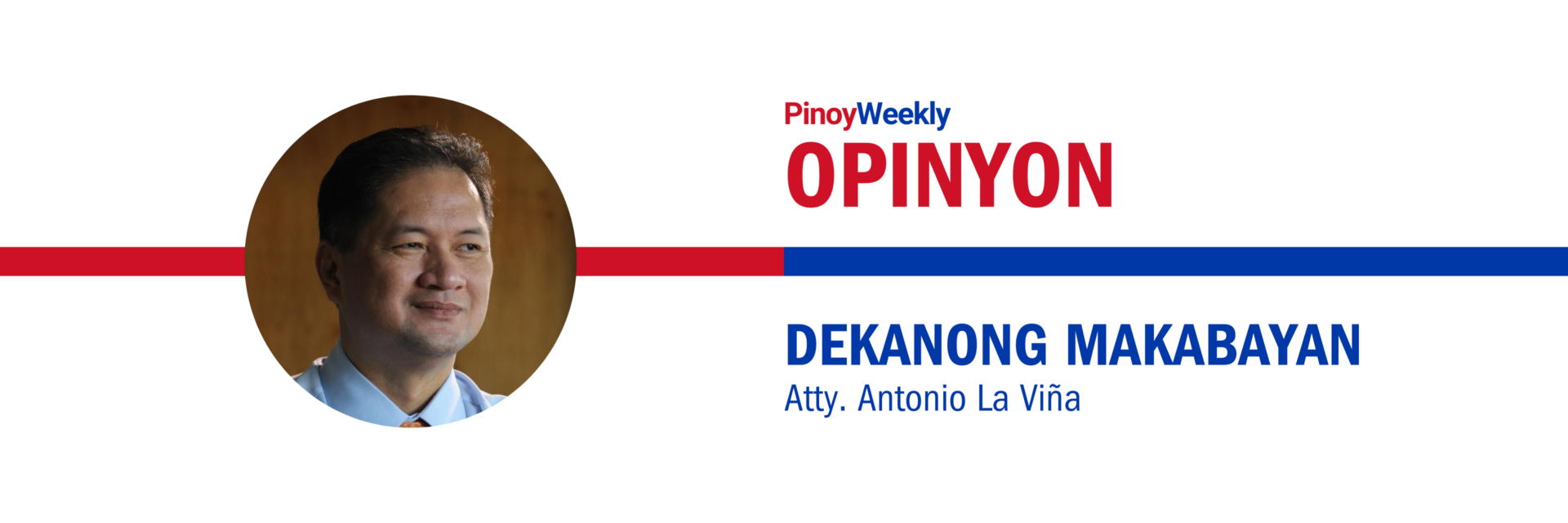Blog | Ibon International reports on the protest movement at #COP21
Ibon International’s Tetet Nera-Lauron reports from Paris, France, in the ongoing protests and marches that coincide with the 21st Conference of Parties of the United Nations Framework Convention on Climate Change or COP 21.
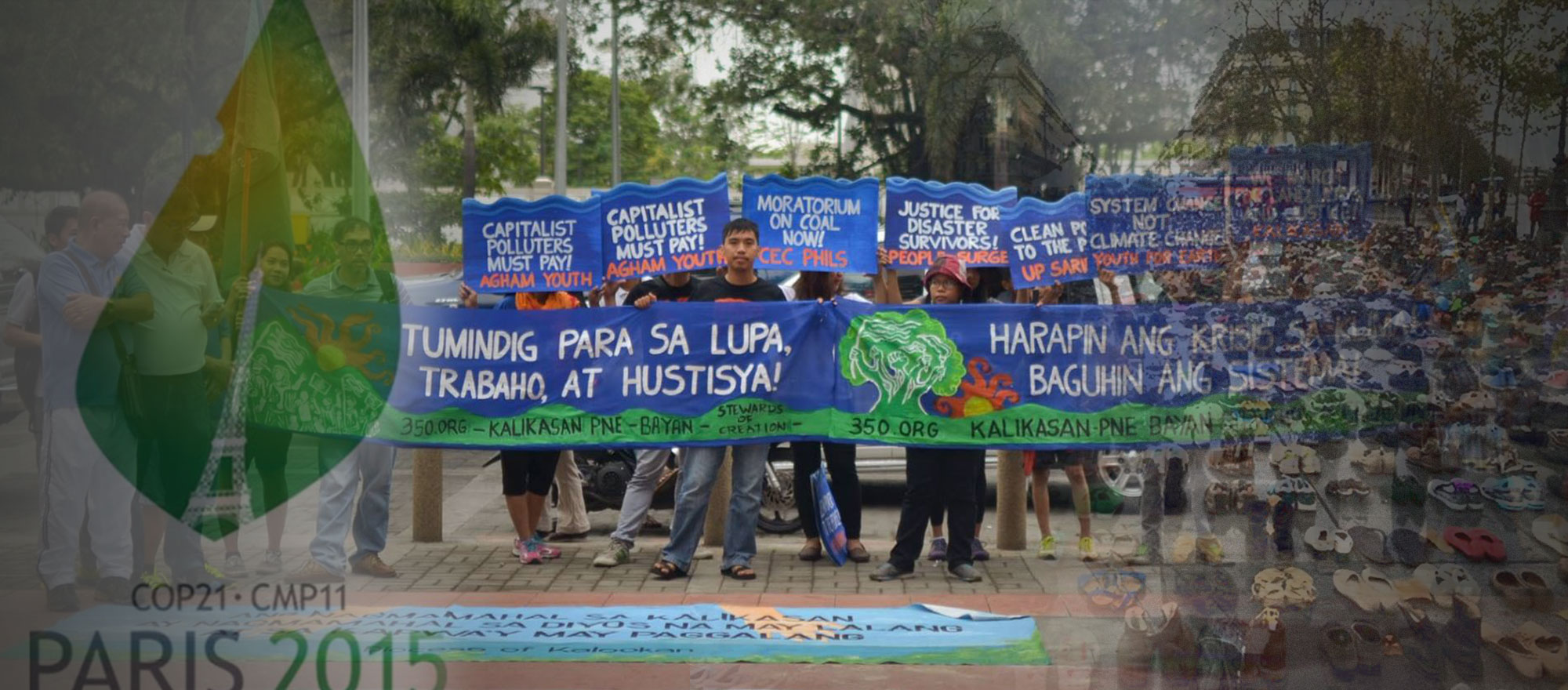
Paris, France, December 1, 2015
Evo Morales en la COP21: El capitalismo es el primer responsable del desastre climático https://t.co/U0X6NkFbgl pic.twitter.com/2goG7sZQo4”
— Gigi Zanchetta (@gigizanchetta) December 1, 2015
More ‘hot air’ from Heads of States as Climate Summit opens
Over 130 Heads of State have arrived in Paris in an attempt to sign a new global agreement, amidst high expectations of people all around the world for urgent and meaningful action to respond to the climate crisis. Just over the weekend, the world saw the biggest ever climate marches of almost 1 million people gathering in 175 countries demanding leaders to come to an agreement that is binding, ambitious, durable and just, to replace the Kyoto Protocol and to take effect in 2020. This new climate deal that is yet to be agreed on is quite controversial already in the approach it takes, as it calls on each and every government to say just what and how much it is willing to undertake actions to reduce emissions, provide finance, and adapt to the increasing impacts of climate change.
Big political speeches from the different Presidents and Prime Ministers were heard at yesterday’s Opening Plenary, highlighting the need to act as one community in order to save people and planet. But not all speeches were created equal, and some were more telling than the others.
Evo Morales, President of the Plurinational State of Bolivia expressed concern on how leaders from both developed and developing countries do not address the structural roots of the climate crisis. Morales said, “we can talk about financing, technology, adaptation and others, but if we do not talk about the roots of the crisis, we will never resolve climate change.”
US President Barack Obama said, “we are the first generation to feel the impacts of climate change, and the last generation that can do something about it. Obama recognized US’ responsibility as the world’s largest economy and its second largest emitter, and goes on to highlight the US’ investments in clean energy and emissions reductions. But there is obviously a disconnect between rhetoric and policy, for while Obama promised to ‘rage against the machine’, the US’ deregulation approach was clear in his statement that ‘(climate action) targets are to be set by each of us, taking into account differences that each nation faces.’
Chinese President Xi Jinping called for an ambitious and binding agreement that should ‘drive us to global efforts to pursue sustainable development.’ China, itself among the world’s largest polluters, said that ‘addressing climate change should not deny the legitimate needs of developing countries’. Xi Jinping also announced China’s focus on developing south-south cooperation for climate financing.
The next ten days will see negotiators hammering out sticky issues in the climate talks, particularly those around the global temperature goal, finance, loss and damage, and adaptation.
Representatives from civil society, grassroots organizations, faith communities, indigenous groups, feminist movements and others will step up the pressure on the governments to come out with a global climate deal that that is binding, ambitious and just. And If the Heads of State’s speeches are any indication of the wide divergence in view points and positions, it looks like there was more ‘hot air’ released in the atmosphere yesterday.
Alejandro Barrios Noya
November 30, 2015, Paris, France

Resistance needs no permit: COP 21 opens with climate marches all over the world and the arrest of around 200 in Paris
The 21 st Conference of Parties of the United Nations Framework Convention on Climate Change (UNFCCC) opened today in Paris, where the world’s leaders are expected to come to an agreement on actions to solve the climate crisis.
From La Paz (Bolivia) to Manila (Philippines) and to Fiji (Pacific Islands), hundreds of thousands of people have participated in various People’s Climate Marches all over the world in the last two days to step up the pressure on the world leaders to agree on a meaningful outcome for the Paris Climate Summit.
However, the COP 21 also takes place amidst a backdrop of a state of emergency in Paris, following the terror attacks of November 13 that left more than a hundred dead and many more injured.
Protest is currently banned in Paris. This means any outdoor gathering of more than two has been strictly prohibited, and anyone taking part in an illegal demonstration could face penalties of USD 3,972 or up to two months in prison. Clearly, this was meant to quell dissent, because while the French government has continued to allow Christmas markets and trade fairs to be held, it has put a number of climate campaigners under house arrest. As such, yearlong efforts by French and international civil society and social movements to mobilize 100,000 for the Paris Climate March had to be cancelled.
Today, in the French capital, around 20,000 pairs of shoes were laid out in the Place de la Republique to symbolize marchers that were not allowed to exercise their right to peaceful assembly. Afterwards, an estimated 10,000 people formed a human chain spanning several kilometers along the sidewalk, with banners that called for ‘system change, not climate change’, ‘no to false solutions’, and chanting ‘l’etat d’urgence, c’est le climat (‘the state of emergency is the climate).
But things got ugly in the afternoon, when French riot police came down full force on hundreds of people gathered at the Republique. The anti-riot police fired tear gas canisters at the people, and quickly the air was filled with smoke that stung the eyes and skin. Some sought refuge at nearby cafes and restaurants, while the others tried to assert their right to assemble and express themselves. The police swooped down on everyone out in the street at the Republique, and filled the buses with around 200 people they arrested.
Liberte, Egalite, Fraternite (Liberty, equality, fraternity) – the ideals that propelled the French Revolution – are these for all women and men, or for the corporations and elites at the Le Bourget, site of the COP 21?

